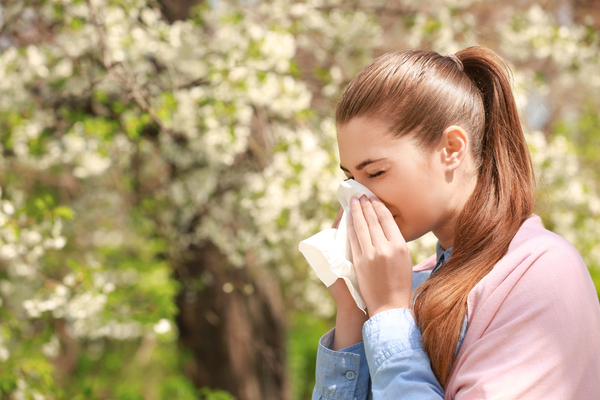 Spring Weather has Arrived – Here is Your Allergy Forecast for 2025
Spring Weather has Arrived – Here is Your Allergy Forecast for 2025
Springlike weather has arrived, and with it, the start of the extended allergy season across the United States, which will last throughout the summer. And as AccuWeather reports, it could be a bad year for millions from the mid-Atlantic to the Pacific Northwest.
“About one-quarter of U.S. adults have been diagnosed with seasonal allergies, and nearly one in five children have seasonal allergies,” AccuWeather Senior Meteorologist and Allergy Expert Alan Reppert said.
Pollen from trees, grass and ragweed are the primary allergens across the country, each peaking at different times throughout the year. “Even if we have an ‘average’ season, we could easily see a few-day period of some extreme pollen when things dry out and there is a week of warm temperatures, especially in the Northeast,” Reppert said.
Here’s when and where people can expect the worst allergies in 2025
Tree pollen
The first allergen to fill the spring air is tree pollen, and it’s already on the rise across the southern United States. Trees begin to grow and produce pollen after ground temperatures rise to 40-45 degrees Fahrenheit following the winter months.
“The cold start to the year in much of the eastern half of the country will keep tree pollen levels lower to start, but there can still be a week period of very high levels,” Reppert explained.
The worst of the tree pollen is expected from part of the Gulf Coast, across the central Plains and into the northern Rockies and Pacific Northwest.
“Drier weather in the Southwest through the spring will help to end the season after a rapid start,” Reppert added.
Grass pollen
“Grass pollen starts as tree pollen starts to wane and can begin along the Gulf coast as soon as April when grass starts to grow,” Reppert said. “It can last through the summer and into the early fall before the sun angle starts to decrease low enough or a frost occurs.”
This year, the Northeast and Pacific Northwest face the worst of the grass-related allergens, especially in June and July amid a warm and wet start to summer.
Dry weather during the beginning and middle parts of the summer season will help to limit grass pollen across the Southeast, including Florida, Georgia, Alabama and South Carolina.
Ragweed
“Weed pollen contains thistle, sagebrush and mugwort, and much like tree pollen, these have different start times through the weed pollen season,” Reppert said, adding that it typically starts amid the grass pollen season.
A dual peak is possible this year across the Tennessee Valley due to a surge in moisture late in the summer, making it one of the worst regions for people with ragweed allergies.
It may also be an extended year for ragweed in the coastal Carolinas and around the southern Plains and part of the Gulf Coast due to an uptick in tropical moisture.
The Northwest may be a hotspot for tree and grass pollen this year, but there will be some relief when it comes to ragweed. Lower ragweed pollen levels are also expected across most of the Rockies and the northern Plains.
Tips to keep your allergies under control
With spring coming, Chief Meteorologist Jon Porter breaks down the AccuWeather app’s features that can help you manage allergy season by forecasting the various pollen indexes of serious allergens.
While encountering pollen is inevitable, especially during peak allergy seasons, several strategies can help reduce the severity of symptoms for allergy sufferers:
•Avoid Early Mornings: Pollen levels are highest just after sunrise, so try to stay indoors during the early morning to minimize exposure.
•Embrace the Rain: Rain can wash out pollen from the air, making the time after a long rain or heavy downpour a great time to enjoy the outdoors with lower pollen counts.
•Keep Your Home a Sanctuary: Keep windows closed and regularly change air filters in your home to maintain clean, pollen-free air throughout the year.
•Change Your Clothes: After spending time outside, change your clothes immediately to prevent spreading allergens indoors.
•Check the Allergy Forecast: Visit AccuWeather.com to see the breakdown of the allergy forecast for your area.
—
Photo Credit: Africa Studio / Shutterstock.com



